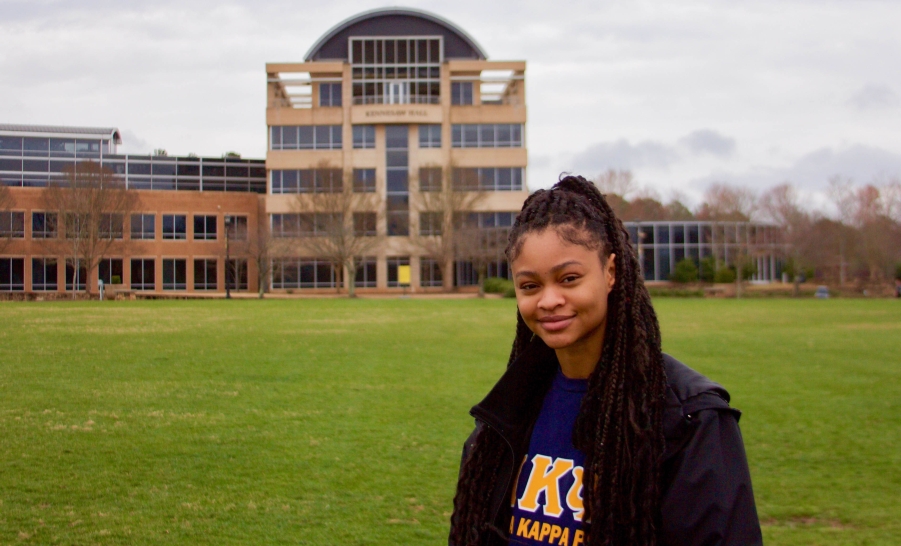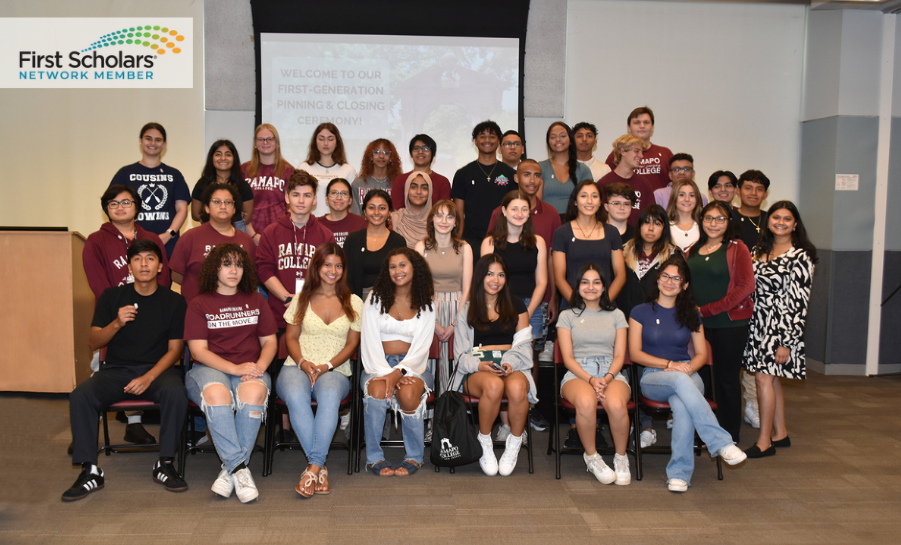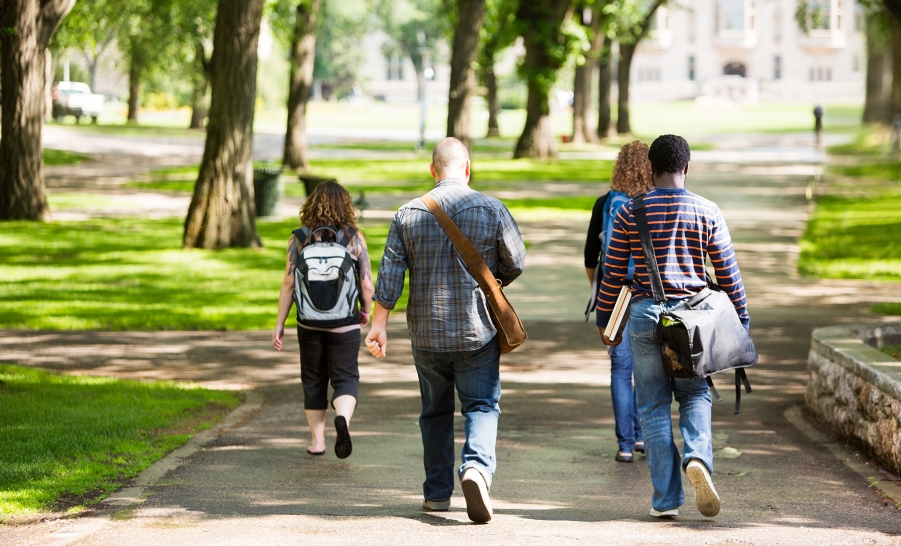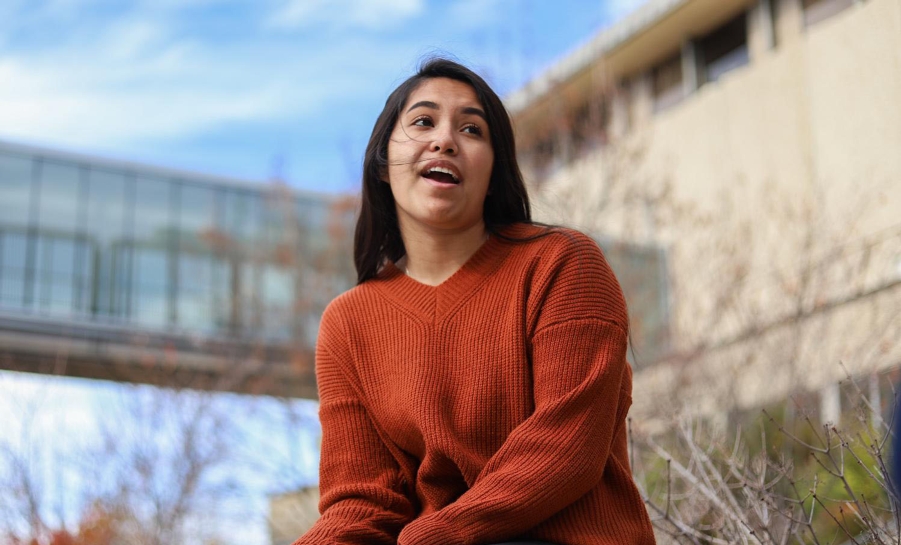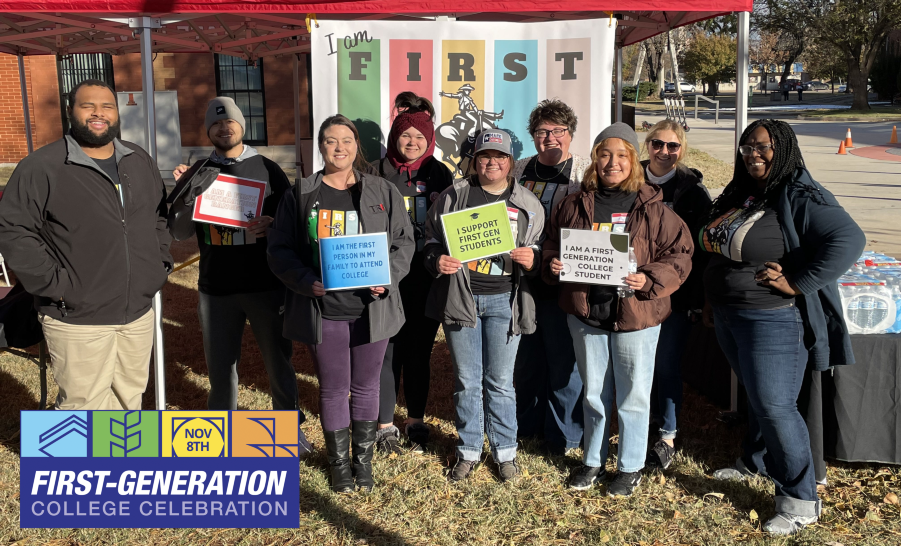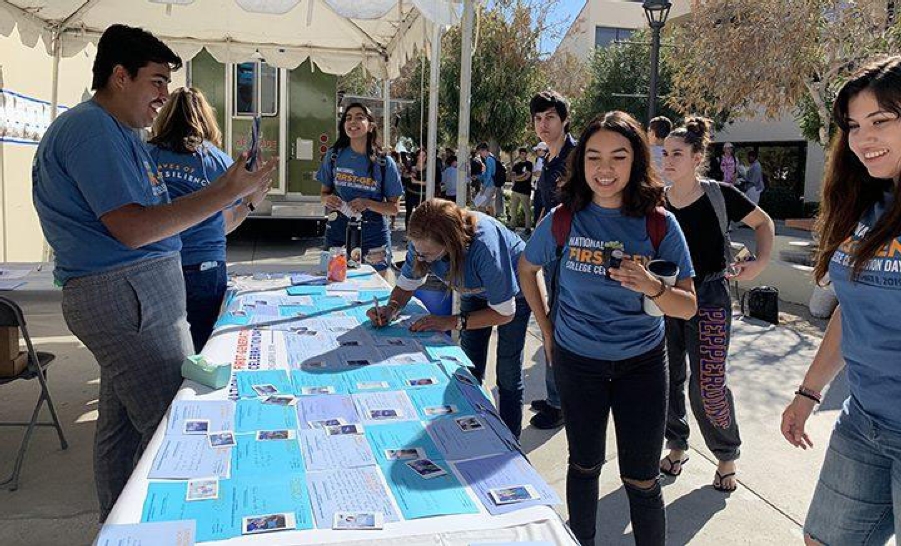Telling the Story of First-generation Success through Symbols and Asset-Based Language
Mary Blanchard Wallace, University of Alabama at Birmingham / FirstGen Forward / March 07, 2024
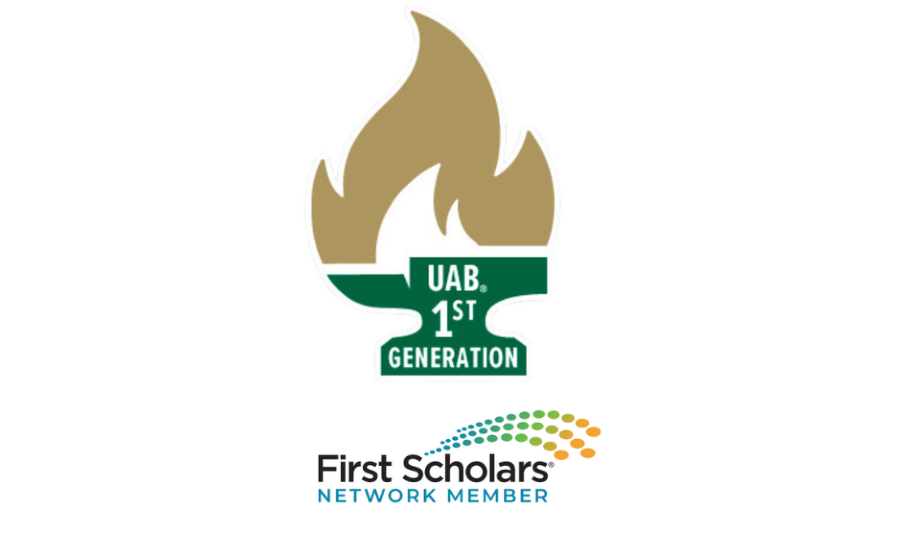
Being first-generation at UAB means you’re a FIRST BLAZER!
The University of Alabama at Birmingham (UAB) sits on more than 100 city blocks of the historic city of Birmingham, Alabama. Our University is a gem in the state of Alabama, and we focus on using the city as our classroom both in-the-classroom and and in the co-curricular. First-generation students compose 34% of our first-year class. Many of our faculty and staff identify similarly, and new initiatives focus on the narratives and stories of success and triumph. Much like the city and the University, our first-generation community has a story to tell.
Storytelling, especially narratives of strength fits with UAB being the first health promoting university in the U.S. Health Promoting Universities are an international community that aspires to transform the health and sustainability of current and future societies, strengthen communities, and contribute to the well-being of people, places and the planet. It is through this lens that we participate in the First Scholars Network, recognizing that settings and systems change are part of creating first-generation student supports at UAB. Through sharing the narratives of first-generation students, faculty and staff, policies, practices and resource flows can be tested through the lived experience of the first-generation community.
The Center for First-generation Student Success uses asset-based language approaches for the first-generation community. Beyond UAB’s First Blazers program, established TRIO programs, National First-generation Celebration week, and a myriad of other student supports, a goal of UAB’s first-generation efforts was to create a visual identifier using the symbols and language of the first-generation community.
At the First-generation Faculty and Staff Luncheon in Spring 2023, we asked those in attendance to submit up to three words that help them identify as first-generation. The response was phenomenal, and the tenor was resounding. Words submitted included: pioneers, determined, resilient, resourceful, creative, trailblazer, defying, relatable, unique, chartering, and champions. We vetted the words with students, who affirmed the list. Our Provost spoke to the audience about imposter syndrome, and stated, “You are not an imposter, you are a Pioneer!” She related our work to the University’s strategic plan, “Forging the Future,” and how we are blazing new trails with our work as a University.
These words helped the first-generation team, including our First Blazers, Student Affairs Marketing and Communicatios, and the TRIO offices, develop a lapel pin with a coordinating card to explain the pin and the meaning of the symbols and words helping to define and solidify the first-generation community as one of strength at UAB. We began distributing the lapel pin on November 8, 2023 to celebrate the uniqueness and strength of the first-generation community. Each first-generation Blazer can receive the lapel pin, with the card containing these words:
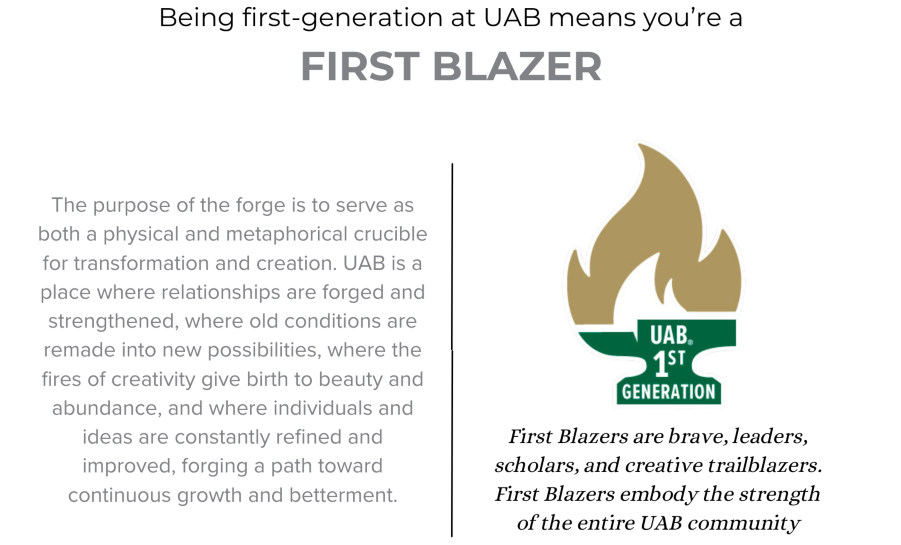
Using asset-based language as we continue to build systems and settings of support and wellbeing for all, visual identifiers like lapel pins, advocate cards, and even t-shirts tell the story of strength of the first-generation community. Jacki Rodriguez (2024) wrote in a blog for the Center for First-generation Student Success,
In advocating for first-generation college students, storytelling serves as a powerful tool for creating empathy, inspiring action, fostering connection, and driving systemic change. By leveraging the emotional resonance of personal narratives, advocates can humanize data, amplify voices, and ultimately empower first-generation students to succeed in their educational pursuits.
Using first-generation student data is only part of the picture. Narratives matter... asset-based language matters. Using the words of the first-generation community elevates stories, data, and systems change. UAB will continue to use words and stories to tell the complete narrative of the first-generation community.
Reference:
Rodriguez, J. (2024, February 6). #AdvocateFirstgen through storytelling. Center for First-generation Student Success. https://firstgen.naspa.org/advocate-firstgen/advocatefirstgen-through-storytelling
